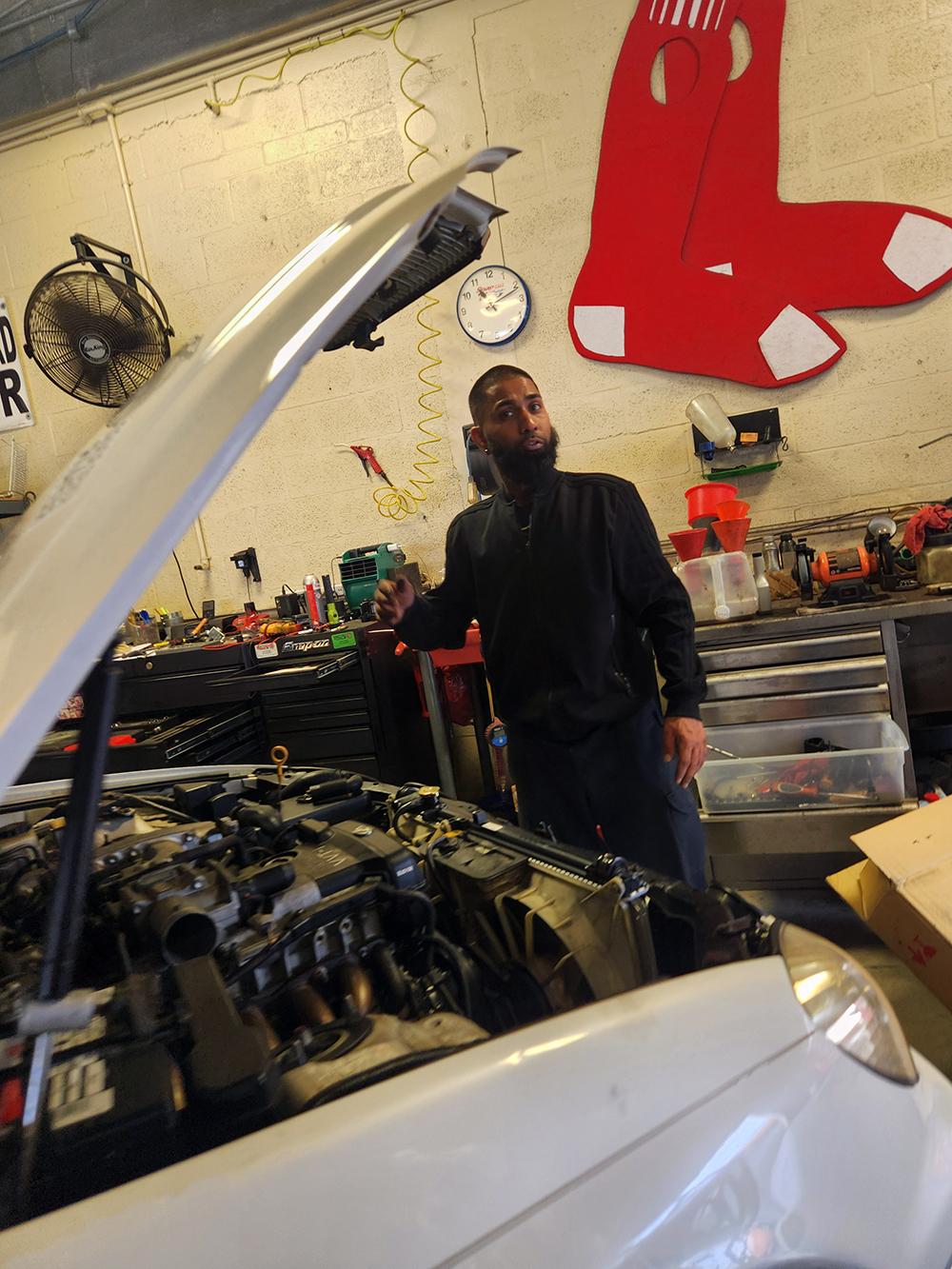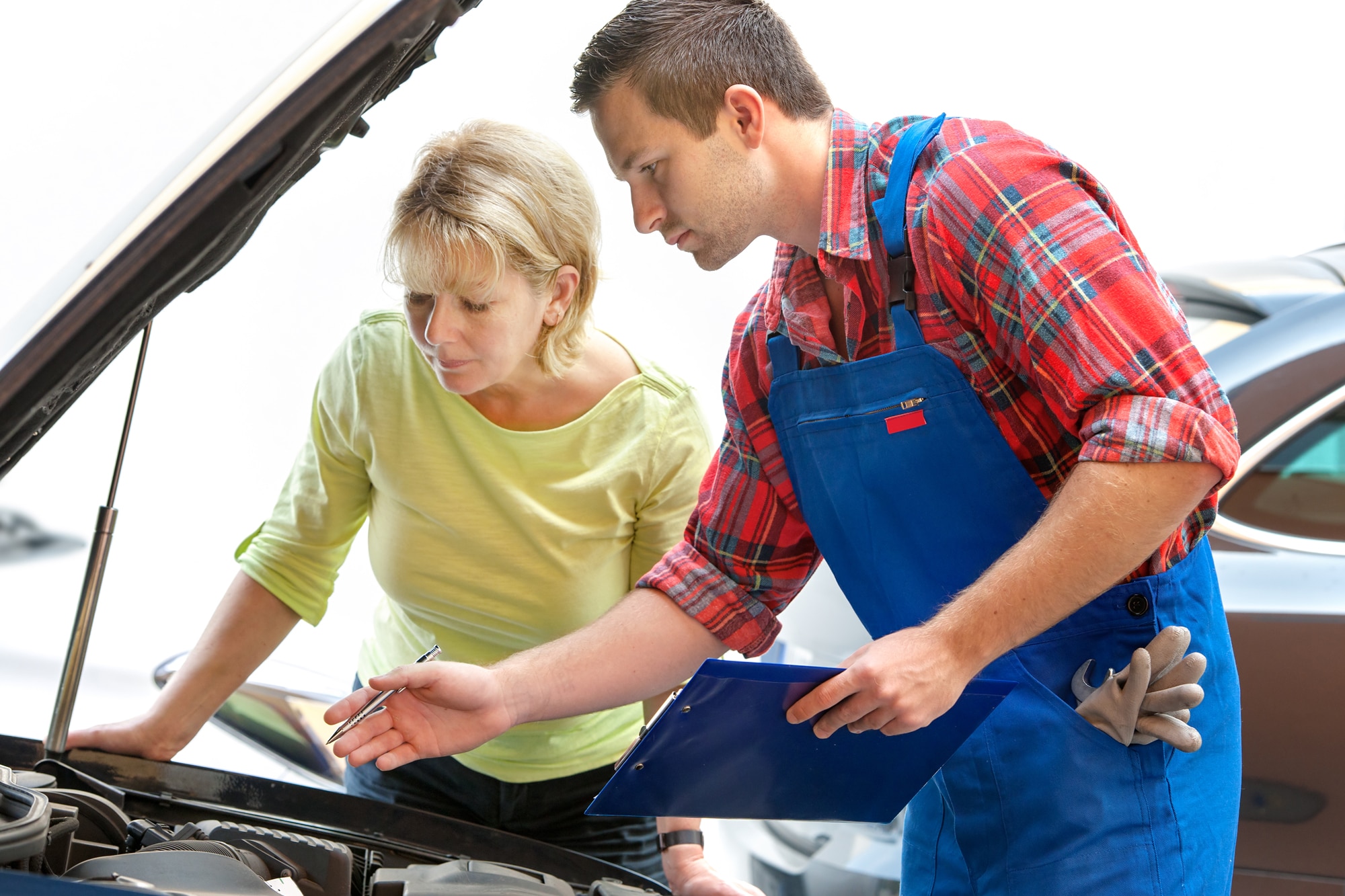All Categories
Featured
When your automobile starts to get too hot, it can be a frightening and stressful scenario. However, recognizing just how to respond in these minutes and taking actions to prevent future getting too hot can assist shield your car and prevent costly repair work. Right here's what to do if your cars and truck overheats and how to avoid it from happening again.
If Your Auto Overheats,What to Do. Draw Over and Switch Off the Engine The first thing you should do if your vehicle begins to get too hot is to pull over to a risk-free area, such as a parking area or the shoulder of the roadway. Shut off the engine promptly to stop further damage. Running an overheated engine can trigger irreversible damages to the internal components, consisting of the radiator and cylinder heads.
Allow the Engine to Cool off After switching off the engine, give it time to cool off. Opening the hood can assist release heat, yet beware as the engine and bordering locations might still be very hot. Wait at the very least 15-20 minutes before attempting any type of more actions.
Examine the Coolant Degree Once the engine has actually cooled, examine the coolant degree. Never open up the radiator cap while the engine is hot, as this can cause hot coolant to spray and shed you.
Evaluate for Leaks or Broken Hoses While you are examining the coolant level, check for any kind of visible leakages or damaged tubes under the hood. Broken or damaged pipes can trigger coolant to leakage out, resulting in a getting too hot engine. If you find any problems, you may require to ask for roadside support or a tow to get the cars and truck to an auto mechanic.
Call for Support If you can not determine the root cause of the concern or the getting too hot continues after complementing the coolant, it's ideal to ask for roadside assistance. Driving with an overheated engine can trigger severe damage to your automobile and leave you stranded.
![]()
Just How to Prevent Your Auto from Overheating. Examine Coolant Degrees Frequently Among the major sources of overheating is low coolant degrees. Make it a routine to inspect your coolant levels on a regular basis and top them off if required. Describe your car's manual for the recommended coolant combination and upkeep periods.
Evaluate Your Radiator Your radiator plays a critical duty in keeping the engine cool. Make certain there are no blockages or particles obstructing airflow with the radiator. If your radiator is obstructed or damaged, it may not work appropriately, causing overheating.
Maintain Your Air conditioning System The cooling down system must be purged and refilled regularly. Gradually, coolant can end up being infected or shed its performance. Adhere to the manufacturer's recommendations for flushing the system, typically every 30,000 to 50,000 miles.
Display the Thermostat and Water Pump The thermostat manages the temperature of the engine, while the water pump circulates coolant through the engine. If either of these elements fails, it can cause the engine to get too hot. Have your auto mechanic check the thermostat and water pump throughout normal upkeep.
Prevent Straining the Lorry Overloading your vehicle, specifically on hot days or lengthy trips, can stress the air conditioning and the engine system. Bear in mind your car's weight restrictions and try to prevent bring heavy lots, specifically when driving in severe temperature levels.
Drive with Care Aggressive driving, such as speeding or quick acceleration, can raise engine stress and warmth production. Reduce, particularly on warm days or when increasing high inclines, to minimize the risk of getting too hot.
![]()
Verdict. Understanding what to do if your auto overheats can stop additional damages to your engine and help you deal with the situation securely. By frequently examining your coolant degrees, inspecting the radiator and hose pipes, and keeping the air conditioning system, you can lower the threat of getting too hot. With aggressive care and appropriate maintenance, your vehicle will stay in good condition, ensuring you remain secure and prevent expensive repairs in the future.
If Your Auto Overheats,What to Do. Draw Over and Switch Off the Engine The first thing you should do if your vehicle begins to get too hot is to pull over to a risk-free area, such as a parking area or the shoulder of the roadway. Shut off the engine promptly to stop further damage. Running an overheated engine can trigger irreversible damages to the internal components, consisting of the radiator and cylinder heads.
Allow the Engine to Cool off After switching off the engine, give it time to cool off. Opening the hood can assist release heat, yet beware as the engine and bordering locations might still be very hot. Wait at the very least 15-20 minutes before attempting any type of more actions.
Examine the Coolant Degree Once the engine has actually cooled, examine the coolant degree. Never open up the radiator cap while the engine is hot, as this can cause hot coolant to spray and shed you.
Evaluate for Leaks or Broken Hoses While you are examining the coolant level, check for any kind of visible leakages or damaged tubes under the hood. Broken or damaged pipes can trigger coolant to leakage out, resulting in a getting too hot engine. If you find any problems, you may require to ask for roadside support or a tow to get the cars and truck to an auto mechanic.
Call for Support If you can not determine the root cause of the concern or the getting too hot continues after complementing the coolant, it's ideal to ask for roadside assistance. Driving with an overheated engine can trigger severe damage to your automobile and leave you stranded.

Just How to Prevent Your Auto from Overheating. Examine Coolant Degrees Frequently Among the major sources of overheating is low coolant degrees. Make it a routine to inspect your coolant levels on a regular basis and top them off if required. Describe your car's manual for the recommended coolant combination and upkeep periods.
Evaluate Your Radiator Your radiator plays a critical duty in keeping the engine cool. Make certain there are no blockages or particles obstructing airflow with the radiator. If your radiator is obstructed or damaged, it may not work appropriately, causing overheating.
Maintain Your Air conditioning System The cooling down system must be purged and refilled regularly. Gradually, coolant can end up being infected or shed its performance. Adhere to the manufacturer's recommendations for flushing the system, typically every 30,000 to 50,000 miles.
Display the Thermostat and Water Pump The thermostat manages the temperature of the engine, while the water pump circulates coolant through the engine. If either of these elements fails, it can cause the engine to get too hot. Have your auto mechanic check the thermostat and water pump throughout normal upkeep.
Prevent Straining the Lorry Overloading your vehicle, specifically on hot days or lengthy trips, can stress the air conditioning and the engine system. Bear in mind your car's weight restrictions and try to prevent bring heavy lots, specifically when driving in severe temperature levels.
Drive with Care Aggressive driving, such as speeding or quick acceleration, can raise engine stress and warmth production. Reduce, particularly on warm days or when increasing high inclines, to minimize the risk of getting too hot.

Verdict. Understanding what to do if your auto overheats can stop additional damages to your engine and help you deal with the situation securely. By frequently examining your coolant degrees, inspecting the radiator and hose pipes, and keeping the air conditioning system, you can lower the threat of getting too hot. With aggressive care and appropriate maintenance, your vehicle will stay in good condition, ensuring you remain secure and prevent expensive repairs in the future.
Latest Posts
Bare Bones Furniture & Mattress
Published Dec 28, 24
2 min read
What Variables Influence the Price of Engine Repair?
Published Dec 28, 24
0 min read
Highlighting Quality and Range
Published Dec 28, 24
1 min read